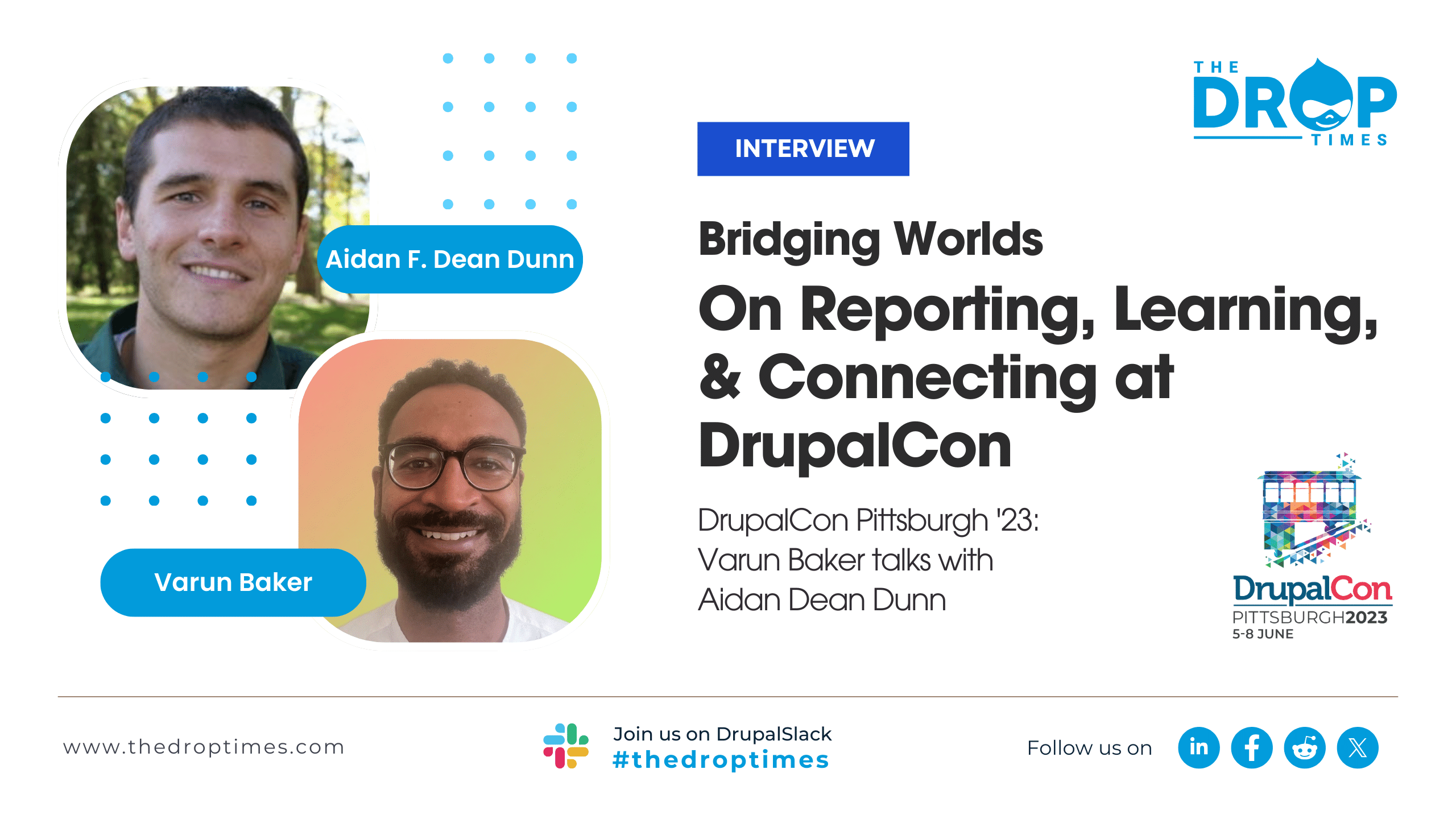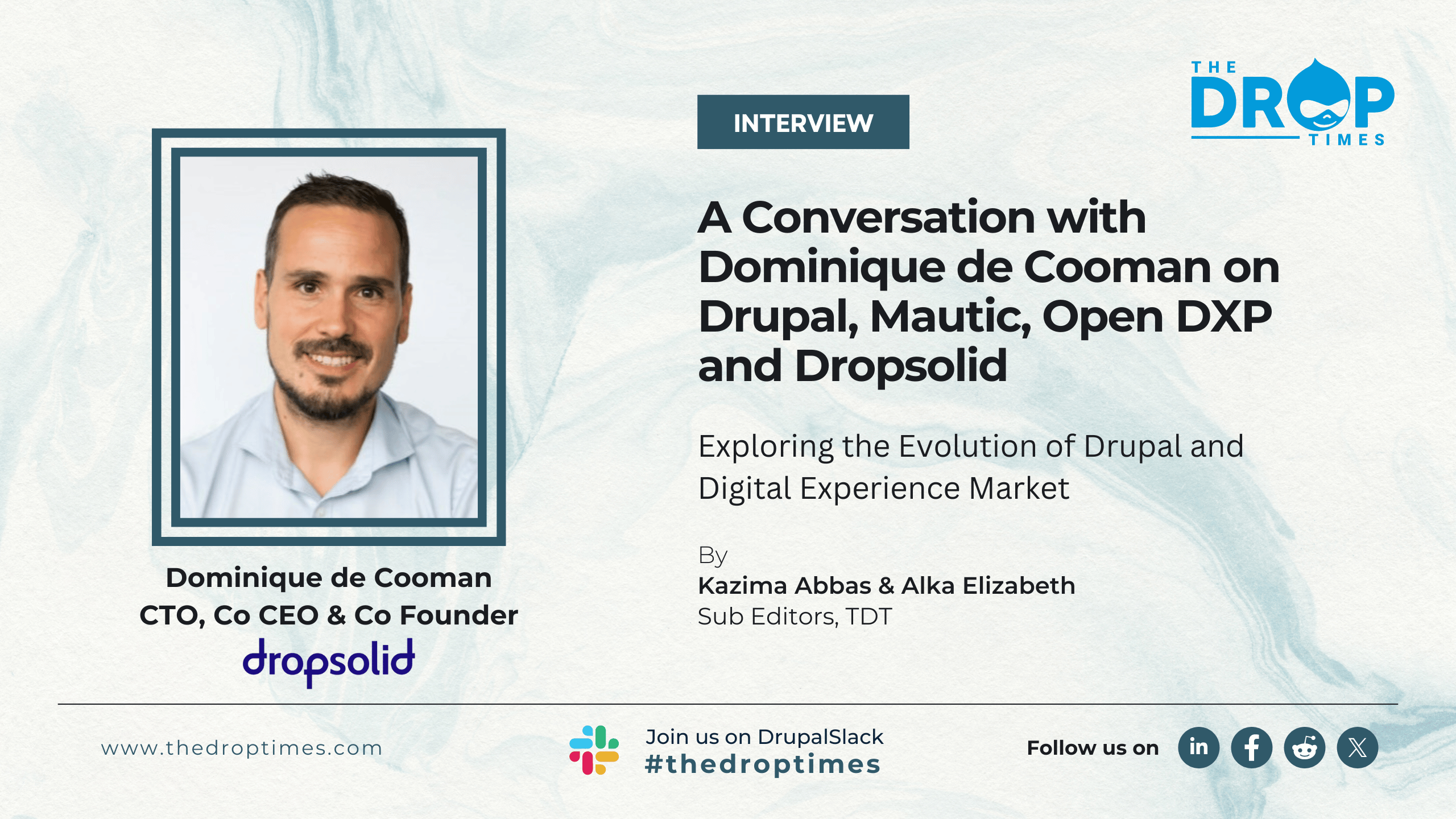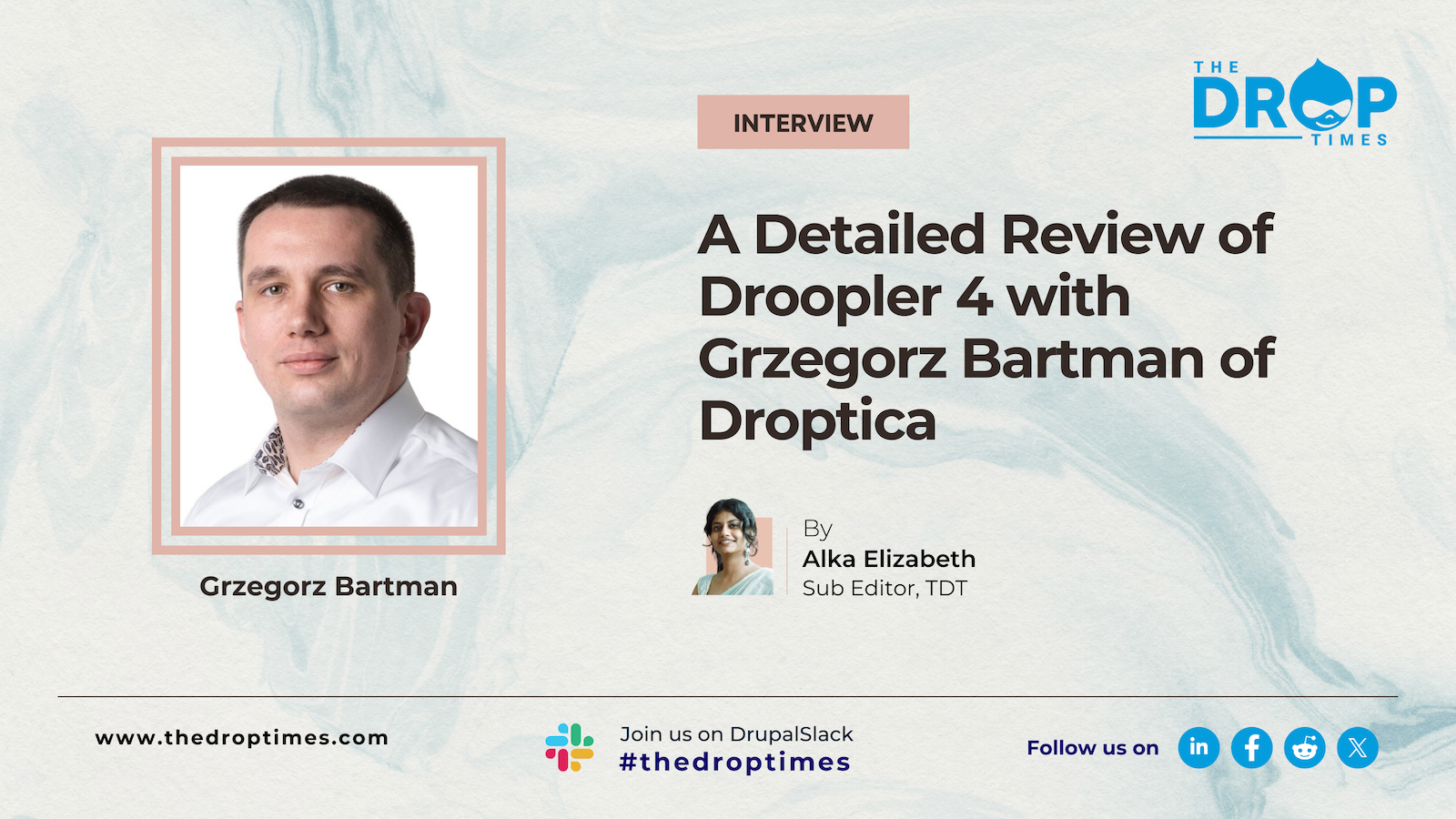Ubercart to Drupal Commerce and the Birth of Centarro: Interview with Ryan Szrama
The beauty of free software is that, as a developer, you have a rock on which you can build your home. Legacy code, as we may say, is not some old-forgotten story. It is where we sprouted our roots. We had something to begin with.
Drupal was Ubercart's bedrock, bringing eCommerce capabilities to the CMS. Ubercart was a set of Drupal modules inspired by OsCommerce, another GNU GPLed software solution for eCommerce, written in PHP. Later, it was packaged as a distribution rebranding Ubercart to Drupal Commerce. As more developers and funding came, a new company, Commerce Guys, was established, which championed Drupal Commerce. A PaaS company, 'platform.sh' was born from its reigns. Then, the developers realized the need to separate the platform and the distribution. Centarro came into existence from that thought, focussing solely on the development of Drupal Commerce and its implementation in larger firms.
TheDropTimes (TDT) got to talk with Ryan Szrama, the President and CEO of Centarro, formerly Commerce Guys. A lifelong game developer and a Theology graduate, Ryan Szrama focuses his core team on developing Drupal Commerce and seamlessly implementing it for prominent merchants. Since 2017, he has served as a member of the Board of Directors of the Drupal Association, actively striving to enhance its community infrastructure and fostering tremendous success for Drupal.
In this interview with Alethia Rose Braganza, former sub-editor at TheDropTimes (TDT), Ryan Szrama shares his most rewarding and challenging journey that crossed paths with Drupal and what led him to sustain that relationship into his entrepreneurial ventures.
“Building friends worldwide and empowering people to do better for themselves with the code that I’ve written motivates me daily to stay engaged and keep contributing.”
confides Ryan.
Let’s skip to the interview.

TDT [1]: Almost two decades since you first crossed paths with Drupal. Could you tell us that story and why have you decided to stay with Drupal?
Ryan Szrama: Absolutely! I got into Drupal thanks to my first boss out of college. He was a computer science major, the son of a refrigeration company owner. The family was very successful in business, and Andy became the operator of the online sales division, which, at the time, we ran on osCommerce. I graduated with a theology degree from a small Bible college in 2005, but as a lifelong game developer, I would bring games into the office to challenge my teammates. When Andy learned I could code, he handed the reins to the site over to me, and the rest is history.
Thanks to its SEO capabilities, we ran several marketing sites on Drupal that did well. That gave Andy the idea to port the entire osCommerce functionality into Drupal, which he tasked me with figuring out. The resulting suite of modules we ran the business on, you know as Ubercart!
I presented our work at DrupalCon Barcelona, which Andy generously sent me and my wife as a wedding gift in 2007, and I’ve been hooked ever since. Building friends around the world and empowering people to do better for themselves with code that I’ve written motivates me on a daily basis to stay engaged and keep contributing.
TDT [2]: What led you to transition from being a project lead of Drupal Commerce to starting your own company that focuses on Drupal Commerce consulting? What motivated you to take this entrepreneurial path?
Ryan Szrama: The genesis of Commerce Guys was one of those happy accidents that developed in a community like ours. Those who established the company in 2009 and merged it with the larger French team met through Drupal events and project collaborations. That led to raising venture capital out of Paris, a lot of fun trips, Drupal Commerce and Commerce Kickstart releases, and the eventual development of Platform.sh.
However, my first love was Drupal Commerce and its future. So, in 2015, we began working to separate the two businesses. Ultimately, that led to the creation of Centarro in 2016, where we refocused our core team on developing Drupal Commerce itself and implementing it for larger merchants.
Honestly, this wasn’t my first choice as we looked toward the future. I wasn’t as motivated to run my own company as I was to see the project's better future. I saw an opportunity to reboot the Drupal Commerce business with more resources, experience, and focus than we had before and moved on it, fortunately, with the full blessing and support of our CEO, Fred Plais, and investors.
I’ve now run the business independently as long as we ran it together - 7 years! It’s been both incredibly challenging and rewarding in many ways.

TDT [3]: Can You talk about the change and growth of ‘Commerce Guys’ to ‘Centarro’? Were there any challenges that came with that said rebranding?
Ryan Szrama: When we first started Commerce Guys, we were literally just that—three guys doing eCommerce work with Ubercart. We didn’t put much thought into the brand, but it worked and perfectly described the business. However, when we refocused the company in 2016, we wanted the future of our business to be one where we weren’t just another company offering a certain set of services—we wanted to identify as a software vendor with a strong, unique brand.
Unfortunately, as those who know the old computer programming joke will know, naming things is hard. We went through various iterations, branding exercises, and domain searches before settling on Centarro. The name derives from the Serbian word centar, which means centre (as in “city centre”), chosen because
- Bojan Živanović, the Commerce Core 2.x lead developer at the time, is Serbian and
- We envision our Platform providing a flexible, adaptable core for a company’s digital commerce business that necessarily involves evolutions in user interface design/toolsets and the integration of third-party business systems.
We had two primary challenges that would caution me against ever doing something similar again.
First, we had a lot of brand equity built up over the years and some obligations to retain the Commerce Guys brand for a certain period. I don’t believe we lost out on significant business due to the new brand, but establishing it took extra work.
Second, we encountered another old problem in web development—the cobbler’s children have no shoes. I wish we’d hired someone else to manage the development of the new site and transition us so we could focus on the business itself. Doing it in-house took longer than it should have, resulting in some web copy being left unfinished.
TDT [4]: What led you to focus on Drupal Commerce as your company's core offering?
Ryan Szrama: It results from two things: history and expertise. At its most basic, developing eCommerce solutions for Drupal and implementing it on behalf of others has been almost my entire career (since 2006!). I’m sure I can happily do other things for work, but given my and my team’s long experience with Drupal Commerce, this is also what we are really good at doing. Anyone familiar with the Japanese concept of ikigai will understand that we’d be foolish not to continue pursuing it if we could get paid for it and believe it’s something the world needs.
Ultimately, that last part is key for us. We believe Drupal’s broader vision for an open web and our vision for merchant success, in particular, serves the world better than the alternatives. We’re creating a future where merchants go to market on their own terms, unconstrained by their commerce platforms and empowered to do what’s right by their customers. Proprietary platforms necessarily restrict what you can do and almost always entail the invasive collection of customer data. We want a better future for merchants and customers alike.

TDT [5]: How do you stay ahead of the evolving e-commerce landscape and integrate new technologies with Drupal Commerce? What is your vision for the future of Centarro?
Ryan Szrama: The answer here is counterintuitive. Really, you just can’t stay ahead. There is far too much going on in eCommerce to attempt that absent a much larger team and deeper pockets than our own. Instead, we’ve chosen to focus on fewer, select partnerships for integrations (e.g., “best of breed” solutions in different verticals with folks like PayPal, Avalara, ShipStation, Signifyd, etc.) and to double down on our core competency at the platform level.
For Drupal Commerce, that means being better than anyone else at product and order data modelling, organization, and distribution. It means leaning into verticals and use cases where we are stronger than the competition, whether that’s internationalization or content marketing, thanks to the strengths of Drupal itself or B2B commerce, thanks to our customer relationship modelling and robust pricing engine. As a company of our size, it’s more efficient to focus on what we are better at than everyone else because those merchants are both willing to pay for the best solution to their unique problems and less likely to churn.
TDT [6]: Can you share some success stories or notable projects that your company has delivered using Drupal Commerce?
Ryan Szrama: We’ve done a lot of work over the years I’m very proud of, including work for many companies I’m not at liberty to name. One such company was a leading provider of COVID-19 test kits that used Drupal Commerce to distribute millions of their kits around the U.S. The pandemic was very isolating and lonely for me, but knowing that my work helped contain the spread was encouraging, even more so when I heard friends in the service industry sharing the URL with each other without knowing I was literally working on the site as they were using it.
One of our longest customers is a Swedish online grocery store called Matsmart, which reduces food waste through a highly optimized eCommerce platform built on Drupal Commerce. We’ve had the privilege of supporting them from their earliest days through multiple major upgrades and a full decoupling to a React front-end with a Drupal Commerce API back-end. I shared their story at DrupalCon Amsterdam 2019, and we continue to work with them to this day.
TDT [7]: What specific aspects of Drupal Commerce do you and your company specialize in? Are there any particular features or functionalities that you excel in implementing or customizing?
Ryan Szrama: Centarro is the obvious choice for custom feature development a merchant desires to be done according to best practices and as closely integrated as possible into the core platform itself. We’re particularly strong at product data modelling and search implementations (thanks also to a budding partnership with Elasticsearch), and we have a well-established pattern for systems integration that is both scalable and fault tolerant (in the case of system outages).
Thanks to Drupal’s roots in content management, we’ve carved out quite a niche for ourselves as a platform of choice for Standards Development Organizations (SDOs) and Continuing Education (CE) providers. These companies are selling content, making Drupal an obvious choice. We help them commercialize that content and tailor Drupal Commerce to the needs of business customers, as these companies are typically engaged in B2B commerce.

TDT [8]: What motivated you to join the Drupal Association? As an Individual member of the Board of Directors of the Drupal Association, what initiatives or projects do you hope to prioritize to strengthen the Drupal ecosystem further?
Ryan Szrama: Joining the Drupal Association was a no-brainer for me, even before I joined the Board of Directors. As a Drupal professional, I can’t imagine not supporting the Drupal Association. The DA maintains our shared community infrastructure, including our website(s) and major events (DrupalCon!), so we all need it to succeed. Even if people disagree with its priorities occasionally, I still think we should all support the DA to ensure the project and our community continue to have the resources we need to function.
I’ve served on the Board of Directors of the DA since 2017, which has placed me behind the scenes of the organization through multiple challenges, not the least of which was surviving a global pandemic when our revenue largely derived from a major in-person event. As a member and director of the DA, I think initiatives to diversify the organization’s revenue continue to reign supreme. I also appreciate the priority the DA has placed lately on innovation, especially evident through the programming and discussions deriving from DrupalCon Pittsburgh.

Ultimately, I’m comfortable with the DA doing more. Historically, for reasons that may not reflect the actual concerns of the community at large, the DA internalized an expectation that it would not take an active hand in shaping Drupal. I think it would be more accurate to say the community didn’t expect the DA to assume leadership of existing contributor activities, and the missed opportunity in years past was for the DA to participate as an organization among equals in contributing to the project at a “higher than mere infrastructure” level. So much of what we as a community do must be done in partnership with the singular organization in charge of our infrastructure and public profile. We should embrace the DA’s participation and expect it to shape the project’s future actively.
There are many ways for this to happen, but one example would be the Drupal Association developing the capacity to employ multiple core contributors. If other companies in the Drupal space are able to do so, why not the one company tasked with marketing Drupal to the wider world from its primary domain(s)? Let’s not forget that Drupal.org is one of the largest Drupal sites in the world. If anyone knows where Drupal excels and where it needs to do better, it’s the team responsible for keeping our community lights on.
Related Event Sessions
Disclaimer: The information provided about the interviewee has been gathered from publicly available resources. The responsibility for the responses shared in the interview solely rests with the featured individual.
Note: The vision of this web portal is to help promote news and stories around the Drupal community and promote and celebrate the people and organizations in the community. We strive to create and distribute our content based on these content policy. If you see any omission/variation on this please let us know in the comments below and we will try to address the issue as best we can.































